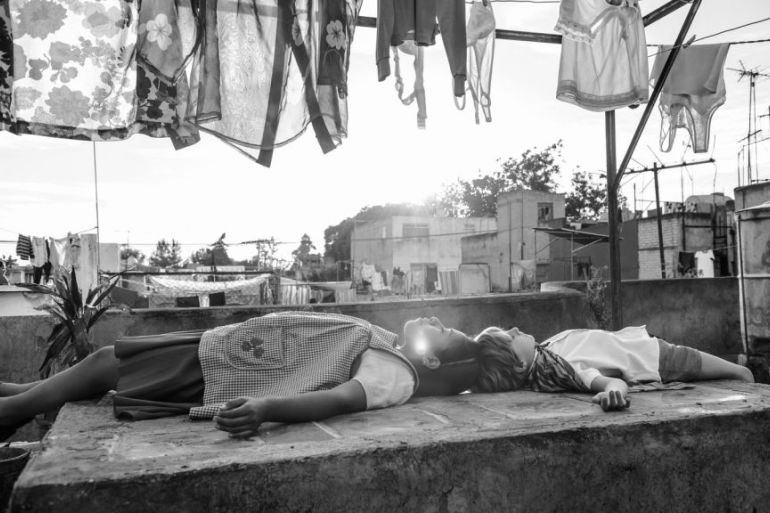It’s normal not to feel in control. Despite how much we’re told that we’re able to steer our lives, it’s hard to dispute that some of the crucial facts of our existence are mostly determined away from our grasp. This may well be the truth cementing the very foundation of cinema. Stories, in their most common form, put one or multiple characters in front a challenge they need to overcome to achieve a desire. However they react, whether they manage to prevail or whatever they end up becoming in the process, the engine of traditional plots is the protagonist’s attempt to assert control over their life. For better or worse, a sense of agency is imbued into the hero, and by extension, into the viewer. Politics lend itself particularly well to being a narrative hurdle. Those who have attended any kind of political event, or participated even in the most menial party activities, will know that by its very nature, politics is a theater of contrasts and friction. Crucially, what matters is how individuals cope with the unholy entanglement of collective action, ideology and personal interest blocking the path towards their objectives, regardless of their motives.
In times of uncertainty, it’s normal to seek models in cinema. In this sense, Roma (A. Cuarón) and The Favourite (A. Lanthimos) have the great merit of posing the right question: what impact can citizens have on political life? Both works tell the tales of women caught in the crossfire of a violent power struggle, whose spillovers invest their personal lives and redefine their relationship to family and lovers. Their visual power is stunning and labor of popular male directors (The Favourite is however co-written by journalist and Queen Anne enthusiast Deborah Davis).
The parallels, however, end here. The answer each movie gives is distinct, not only by virtue of the radically different historical settings but also through the narrative structures the scripts.

The premise behind Cuarón’s movie is that of revisiting the director’s childhood in the turbulent Mexico City of the 1970s. At the time, the country was embroiled in a bitter fight between left-wing activists and guerrilla fighters and the brutal government of the Revolutionary Institutional Party. The struggle, known as the “Dirty War”, is often put in the wider context of the Cold War, albeit also being interpreted as an additional chapter of violence in Mexico’s complex history of racial and class inequalities. The story is seen through the eyes of Sofia, the helper in a higher middle-class family in the district of Roma. Sofia is Indios, and her personal experience is marked by poverty and marginalization. As blood starts to flow in the streets and bad luck keeps striking her as well as the employing family, she soon ends up in solidarity with the mother and the three children she cares for.
However, it’s debatable whether “solidarity” is the right term to describe their relationship. As observed by Richard Brody in the New Yorker, Sofia is passive both towards the History unfolding in the streets and the forces molding her own personal history. Exposition is mostly left to the stand-in for Cuarón’s mother, who’s going through a bitter divorce and outright links the plight of her handmaid with that of her family. If Sofia has an opinion on the paramilitaries who have recruited her boyfriend, on the white-owned mansions she serves in, on the need for personal connections to access quality healthcare, she keeps it for herself. In this sense, Roma stays true to its title, which suggests the movie being a rich but linear time-capsule of those years rather than the exploration of Sofia’s experience.
The opposite is true for The Favourite, which follows the struggle of Abigail in supplanting Queen Anne’s lover as the real string-puller of the English crown. Introduced to court as the humblest of servants, thanks to her acumen she’s raised to the ranks of chambermaid by the queen’s confident and lover Lady Marlborough. From there, she exploits her friendship with Marlborough to approach the beating heart of the court, the queen herself, navigating the bitter rivalry between the pro-war Whig faction and the taxpaying Tories, on whose backs Marlborough is waging a bloody war against the French. Set a few years after the Glorious Revolution, England’s course is largely determined by the political confrontation between the two parties, with the monarch acting as the judge mediating between the interests of the two poles. These aren’t the times of mass movements, but rather of persuasion: as such, the intimate relationship between Lady Marlborough and the queen takes on deeply political dimensions.
Abigail’s fight to become the favorite is motivated by self-preservation and the desire to reconquer the pride lost when her father literally gambled her away. As such, she makes use of all the tools at her disposal, securing her position at court by scheming with the Tories and fostering the love of Anne. The queen is weakened by illness and lack of love. The power dynamic in her relationship with Marlborough clearly puts the favorite in a position to use the queen as a political sock-puppet. However, the couple dynamic is complex. Although Marlborough clearly uses Anne to rule the country, she also truly cares for her elder lover. Court struggle is part of the equation whose focus is the status as the queen’s favorite. As such, politics are both mean and end, manipulatable variable and outcome.
Where Sofia from Roma suffers politics as a force of nature to be weathered, Abigail and Lady Marlborough attempt to navigate the tides of politics. Where in the first case politics is the force to be overcome, in the latter politics is the act of overcoming itself. Of course, this is also a reflection of class and historical context: we tend to judge a courtesan as having a far deeper impact on the destiny of the nation than the servant to a middle-class family. The latter is usually dignified only through what we may consider stories of “common” women and men, hardly as power epics. If history is always the product of wider social and cultural movements, one could be justified in comparing these movies and concluding that the scale of decision-making and political action has thus shifted from court intrigues involving hundreds of courtesans to a maelstrom involving hundreds of thousands, millions of people. Even the most ruthless 18th-century betrayal is nothing compared to death squads, massacres, mass protests, elections.
And yet, the brilliance of Roma and The Favourite is that they subtly subvert the dominant logic of the eras they portray. Whereas an audience we see agency in Abigail’s attempt to navigate the storms of the court, it’s possible to perceive the underlying threat of an immense force waiting just outside the palace. Throughout the film, the peasantry acts as a looming “big bad” that will come to put an end to the court’s empty reveries if the baton of government is wielded too badly. Similarly, far from being independent women capable to shape their own future, Lady Marlborough and Abigail constantly need to compromise, renounce to an agency by selling their own bodies, channeling the desires of the men sitting in Westminster, pretending that dodging political (and literal) bullets is nothing more than a voluntary waltz. Two-hundred years later, Sofia seems far-removed from the movements that declared to fight for her cause, either by protecting her from the chaos of communism or the exploitation of natives. But while she has no control over the cataclysms crashing on her life, she does preserve a sense of dignity and agency. As a white man, I hardly have the tools to process what she goes through. Cuarón, although incomparably more familiar with that story, may also not be the best person to do so. But if films have the power to let us see the world through the eyes of someone else, then it seems to me that we shouldn’t confuse Sofia’s silence with the portrait of a woman lacking anything to say. Having something to say shouldn’t be confused with outright talking, and in this Cuarón’s approach is more nuanced than what critics suggest.
Over the course of the movie, Sofia comes to term with systemic violence by forming a family with her “employers”. She does exercise agency, namely by building a small community which defies the combative logic of politics entertained by Abigail and Marlborough. By being submerged in a reality where the act of an individual carries little weight, she is more than cognizant of the fact that she cannot “win” in the way movies have thought us, with the protagonists flying off towards freedom having defied evil (in one scene, she sits in the cinema watching a movie with exactly this finale, La Grande Vadrouille). And because of this, unlike the aspirant favorites living in the illusion of total control, she’s able to conduct a life which may not be of freedom, but which is one of decency and love. This may seem like inaction to some, but in times of cheap talk and distrust, it’s surely worth a thought.
To help us continue to create content, please consider supporting us on Patreon: https://www.patreon.com/filmera.


